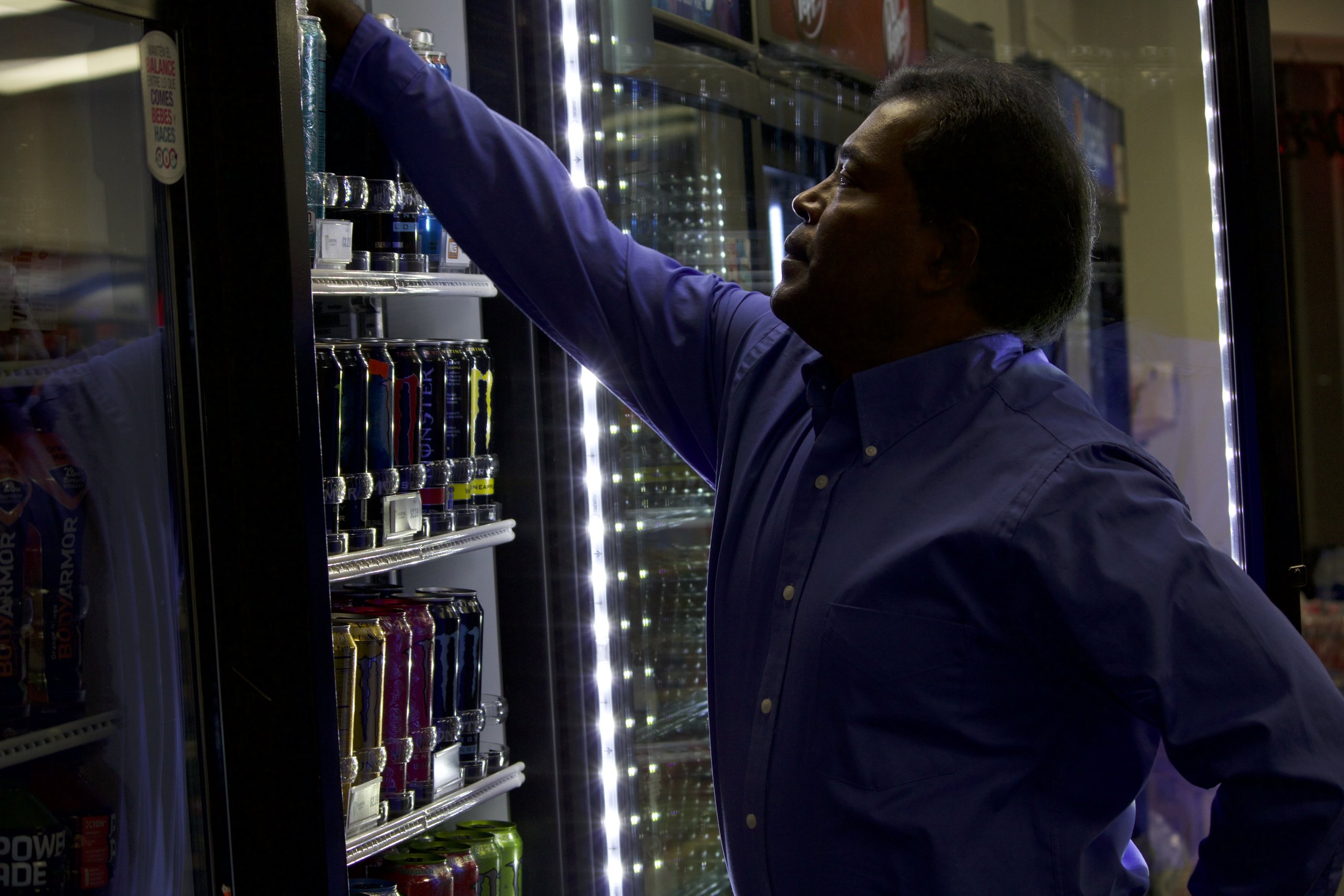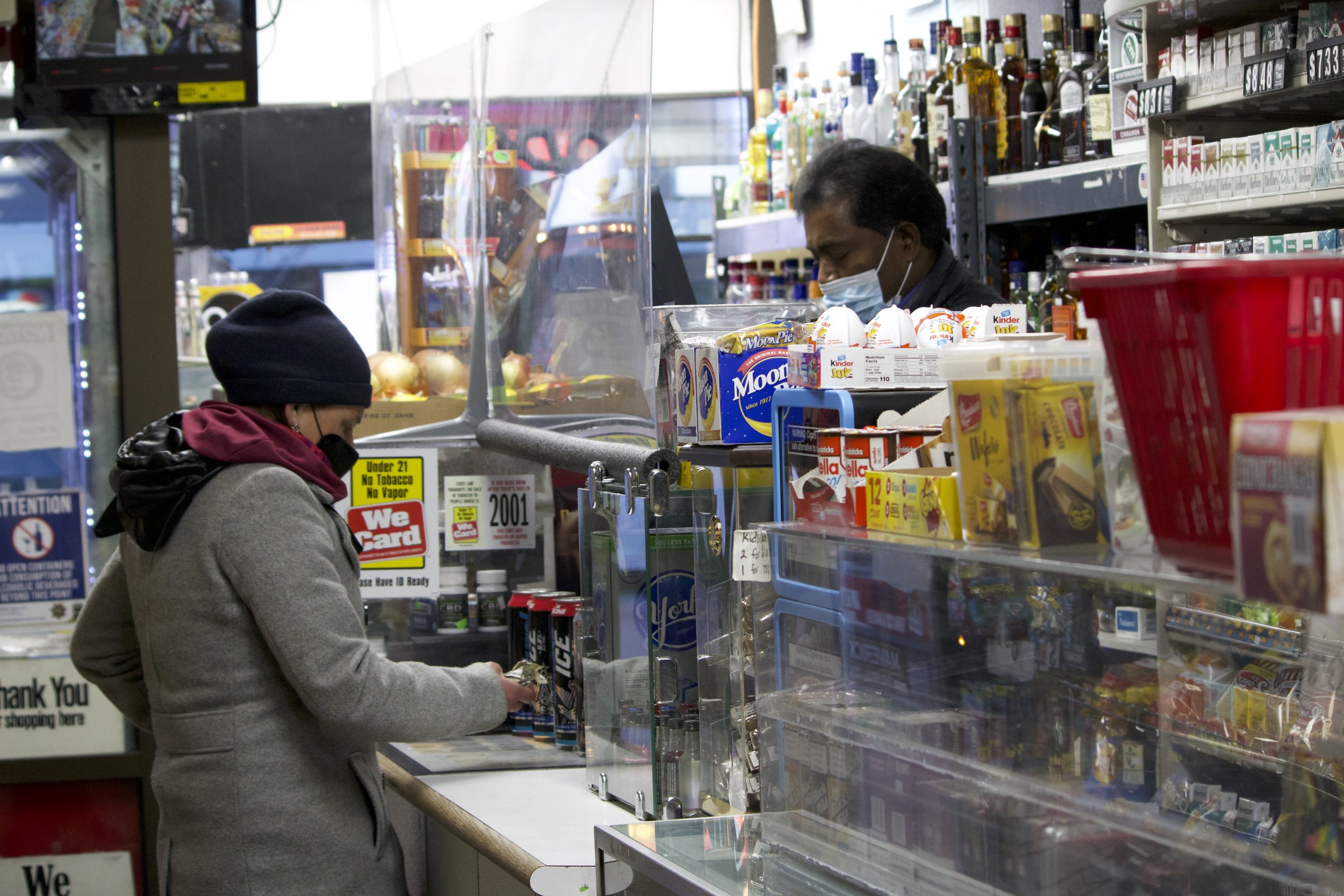An Impediment to Survive?
If you follow the Reno City Council meetings closely, you may have noticed Masud Shagor stand at the podium and address his concerns in front of the council members quite a few times.
Earlier this year, Shagor was back at it, asking the Council to reconsider a new proposed law on banning single serve alcohol in certain downtown areas, including on N Virginia St. where his convenience store Silver Smoke is located.
His requests to Council members were specific: “200 ml, can you please let us sell that one item and if you reduce some liquor license fee, we are paying almost $2800 a year,” he said.
“They heard me clearly, they heard me last time also, but last time it seems to me, their feeling was, ‘wait a minute, it is done already,’” he added.
The ordinance, which will be enforced starting summer 2023, will prohibit the sale of single serve alcohol in containers less than 20 ounces, including single prepackaged shots. Packaged alcohol, though, as well as beers in containers 20 ounces or more, will still be allowed. The final ordinance was a step back from an earlier proposal to ban all single serve alcohol.
Shagor still sees it as an impediment for his small business to survive.
From Dreams of Being a Barrister in London to Running Corner Stores in Reno
Shagor, now in his mid 40s, came to Reno from Los Angeles in 1992. He owns three convenience stores, with another one in Sparks which is next to the Nugget Casino and a third in the southern part of town.
As a child, he wanted to be a barrister in London but says he ended up in America. Over time his aspirations changed and he only wanted to be a businessman. He has three stores now but definitely wants to ‘upgrade’ himself.
“I started going to school, but then I stopped myself. It was a little late for me to start all over, because I finished my Master’s in Bangladesh and I came to America, then I started making money to start a family and back to my family ( in Bangladesh), I have to help them also,” Shagor said.
In the past three decades, Shagor has seen Reno evolve. “It was so busy,” he remembers of Virginia street in the 1990s. “Casino was so busy, downtown was so busy. It was literally a gambling industry, now it is not like that anymore. So it is now a warehouse town and Tesla came here and Panasonic came here and the town is getting bigger and people are moving from all over.”
It was specifically his friend working in a local casino that made him choose Reno over all other places in America. Two sons grew up here; one pursuing geological engineering at UNR and the other at McQueen high school.
A Sour Taste
Shagor regards America as a land of opportunity. “if you are nice, people are nice to you,” he said. “If you work hard and be honest … it will be sustainable and you can achieve your dream.”
He remembers local support he got after the 9/11 attacks fondly. Immigrant store owners were being attacked in other parts of the country. “It was morning, I was going to open my store and I did not know it happened in New York … police came to my store and gave me security and gave me a phone number and if anybody try to loot my store or hurt me, they will be there. That means they do care for their citizens,” he said.
The new ordinance is leaving a sour taste for him though amid stressful inflation.
“It will have a big negative impact on our business,” he said. “it will take at least 30% of business from us and before this the payrolls, which is employee were $10, $12, $9 per hour, now we have to pay $15 an hour. So our overheads went up already. Our income is going down because of that…I was asking to reduce the liquor license fee, fees is too much high, if they stop selling those items, they could reduce the fee.”
He doesn’t see the change as beneficial for customers either. “For example not only homeless people or people who panhandle, the people who work in casinos or the retired people, have very limited money,” he said. “So what they will do, they will get the money together and buy the big bottles. So when people have more, they will drink more. It will be more alcoholism… and the homeless people, they will gather together, put the money together to buy big bottles and what they will do is they will start fighting for bigger bottles…this will not keep downtown clean.”
The ordinance will also mandate that stores have at least 10 percent of their products be fresh or frozen perishable food, another impediment to his business practice Shagor said.
“Most of the people who live in downtown, they don’t have kitchen. What they do, they buy the frozen food, they buy the canned food. And in my stores, for example, I do have some, it's not produce. It's just like, say potatoes, onion, that kind of thing. I do carry oranges, bananas. We do have it. And we do have a lot of canned food. So we do have more than they are expecting. We do have 20 to 30% food line already. And if they expect us to sell cabbage, cauliflower, or that kind of vegetables, it'll be just an extra burden for us. Nobody buy[s] those things. Nobody even asked in 20 years, ‘Hey, do you have a cauliflower in your store?’ They don't have any kitchen. What will they do with that? Yes, we do have packaged vegetables. That's reasonable, that's logical. And we don’t have storage, we do have a freezer but vegetables, I don’t know if vegetables will store … in frozen cooler, that will be another problem,” he said.
In due time, Shagor says he is ready to go back before the City Council to keep fighting for the livelihood of store owners like himself.


